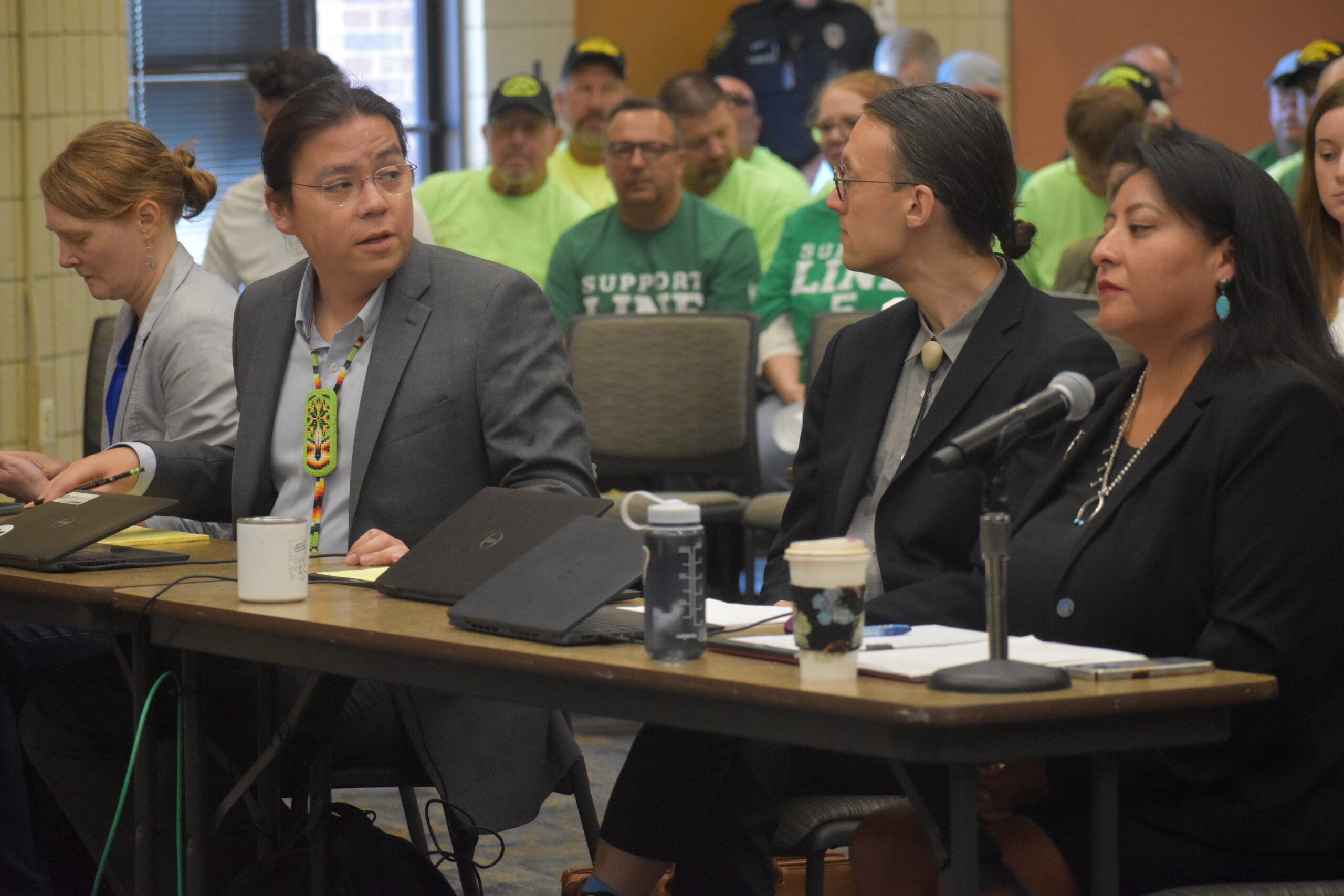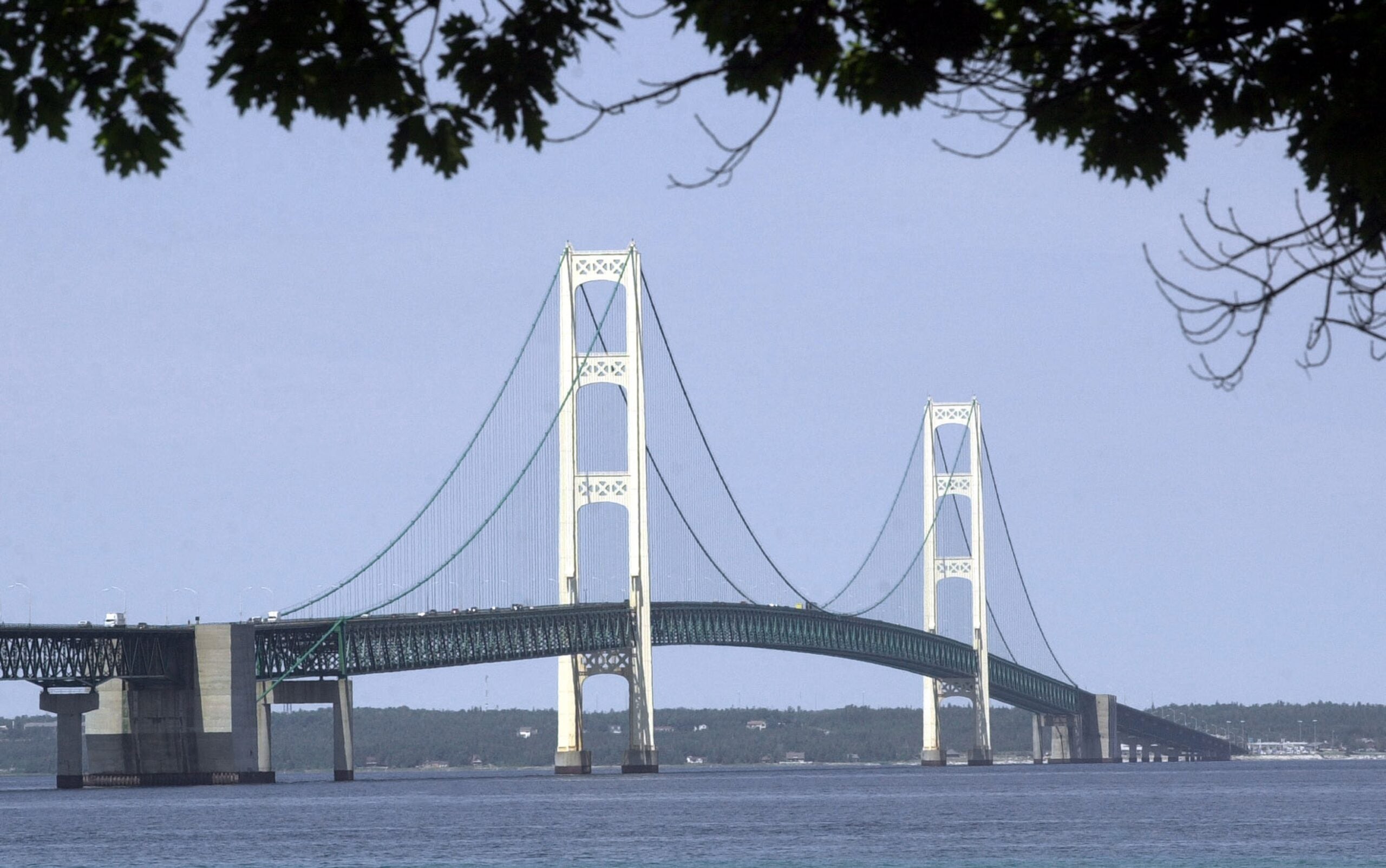The Minnesota Court of Appeals handed a major victory to Enbridge Energy on Monday, affirming state utility regulators’ approval of the Canadian company’s Line 3 oil pipeline replacement project.
A three-judge panel ruled 2 to 1 that there is substantial evidence to support the Minnesota Public Utilities Commission’s approval of the project. The PUC approved a certificate of need for the Line 3 project twice — in 2018, and again last year. The commission also granted the project a route permit, along a different route than the current Line 3.
But groups fighting the project sued, arguing Enbridge failed to prove there’s enough demand for the oil the pipeline will carry.
News with a little more humanity
WPR’s “Wisconsin Today” newsletter keeps you connected to the state you love without feeling overwhelmed. No paywall. No agenda. No corporate filter.
In Monday’s ruling, the court acknowledged that “reasonable minds may differ on the central question of need for replacement Line 3,” but that the PUC was correct in issuing the certificate of need — a key permit required for the project to move forward.
The court also acknowledged that regulators needed to navigate a tight balance when considering the project, and “reasonably selected a route for the replacement pipeline based upon respect for tribal sovereignty, while minimizing environmental impacts,” presiding judge Lucinda Jesson wrote in the opinion.
The ruling comes one week after opponents staged the largest action yet against the controversial project. More than 200 activists were arrested for trespassing on the Two Inlets pumping station along the route, just a few miles south of Itasca State Park. Many locked themselves to construction equipment in an effort to slow work on the project — and try to spur President Joe Biden to take action to block the pipeline.
Construction Continues
Enbridge says the nearly 340-mile, $4 billion pipeline across northern Minnesota is now 60 percent complete.
The project is part of a larger replacement of Line 3, which carries crude oil from the tar sands region of Alberta, across Canada and Minnesota to Enbridge’s terminal in Superior.
The replacement pipeline crosses a new portion of the state, where Native American tribal members maintain treaty rights to hunt, fish and gather wild rice. The new pipeline is also slightly larger than the current Line 3, and will be able to transport nearly twice as much oil as the old line. Enbridge has had to reduce the capacity of the old line, which was built in the 1960s, to maintain safety.
The PUC approved the project largely on safety grounds, determining that the benefits of replacing an aging, corroding pipeline with a history of spills outweighed the risks the project poses to new watersheds and its contribution to global climate change.
In the court’s decision, Jesson noted that “with an existing, deteriorating pipeline carrying crude oil through Minnesota, there was no option without environmental consequences.”
The challenge, the court said, was “to balance those harms.”
Jesson also wrote there was no option that didn’t impact the rights of Native Americans, and also “no crystal ball to forecast demand for crude oil.”
“When balancing harms and predicting future demand, the commission is due deference,” she wrote in the opinion. “It is the agency tasked with these difficult decisions.”
Enbridge officials celebrated the court’s ruling, saying the company had followed a robust set of procedures to secure all the approvals it needed.
“After six years of community engagement, environmental review, regulatory and legal review, it’s good to see confirmation of previous decisions on the Line 3 Replacement Project,” said Vern Yu, an executive vice president with the company, and its president of liquids pipelines. “From the start, the project has been about improving safety and reliability for communities and protecting the environment.”
Pipeline opponents say they’re disappointed, but are pledging that they will continue to fight Line 3.
“This is the beginning of what’s coming. We’re going to continue to assert our (treaty) rights. Enbridge has no right to come on to our ceded territory and think that they call the shots,” said Nancy Beaulieau, a co-founder of the Rise Coalition and an organizer for MN350, a climate justice organization.
One Of Several Court Challenges
Several tribal governments and environmental groups — in addition to the Minnesota Department of Commerce, which advocates on behalf of consumers and the public interest in matters before the PUC — participated in the case at the center of Monday’s ruling, asking the court to overturn the certificate of need and route permit.
They argued that Enbridge failed to provide a long-term demand forecast for the oil that the pipeline would carry, as required by state statute. They also argued the environmental review the state conducted of the project didn’t adequately assess the project’s potential impacts.
Plaintiffs in the case include the Mille Lacs Band of Ojibwe, the Red Lake Nation and the White Earth Nation; Friends of the Headwaters, Honor the Earth, the Sierra Club and Youth Climate Intervenors; and the Minnesota Department of Commerce.
Several of those groups previously asked the court to temporarily stop construction of Line 3 until the court decided on this legal challenge, arguing the pipeline would be largely complete by the time judges issued their decision. The court rejected the request.
The decision is expected to be appealed to the Minnesota Supreme Court, although Frank Bibeau, an attorney representing the White Earth Nation, decried the length of time it would take for an appeal to work its way through the courts
“By the time we get this through, it would take nine months to a year,” Bibeau said. “I don’t think that road’s any good for us, to tell you the truth. Right now, I don’t think it’s going to help us to make that our primary strategy.”
The case is among several challenges to the Line 3 project that opponents have raised since the project began.
A previous appeals court ruling in 2018 required the state to update the project’s environmental analysis to include consideration of the impacts of a possible oil spill on Lake Superior.
Last week, the appeals court heard arguments in a different case — this one challenging a key water quality permit that the Minnesota Pollution Control Agency granted to the Line 3 oil pipeline project.
Enbridge began building Line 3 in December of last year, and has made quick progress. The project is over half finished. The company recently stopped work on the pipeline for two months during the spring thaw, although it continued work on eight pump stations.
Construction began anew on June 1, and the company expects more than 4,000 workers to be on the ground shortly. It has said it expects the pipeline to be completed and in-service sometime during the 4th quarter of this year.
But protests have also escalated recently.
Since Minnesota utility regulators first approved Line 3 in 2018, opponents have pledged stiff resistance. The new pipeline, which replaces the current, aging Line 3, would transport nearly 800,000 barrels of Canadian oil across northern Minnesota every day.
Opponents view it as likely to exacerbate climate change and put water resources at risk. More than 200 people were arrested earlier this month during a four-day gathering marked by prayers, marches and nonviolent acts of disobedience.
“The decision today is disappointing, but our fight for our water and what is right continues,” said Tara Houska, one of several organizers of last week’s Treaty People Gathering. “Line 3 is a clear violation of Indigenous rights, an abomination to climate science and to human rights. Our resistance is clearly growing, we cannot stop, and we will not stop.”
Editor’s note: This story was originally published on MPRnews.org.





